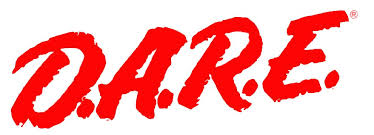dare

n. 挑战;挑动
vt. 敢冒;不惧
vi. 敢;胆敢
n. (Dare)人名;(英)戴尔;(意)达雷
vt.
敢;敢做;激(某人做某事);问(某人)有没有胆量(做某事)
vi.
敢;敢于;大胆;无畏于
aux.
敢,竟敢;
n.
激将,挑战;
变形
过去式:dared过去分词:dared现在分词:daring第三人称单数:dares
双语释义
v.(动词)vt. 敢; 敢做 have the courage; venture; face
vt. 向…挑战,激 challenge; suggest that sb has not the courage or ability to do sth
aux.(助动词)敢,竟敢 have sufficient courage or impudence
n.(名词)[S]激将;挑战 sth dangerous, difficult or embarrassing that you try to persuade sb to do, to see if they will do it;an invitation to do sth dangerous as a war of proving one's bravery;challenge
英英释义
dare[ dεə ]
n.a challenge to do something dangerous or foolhardy
"he could never refuse a dare"
同义词:daring
v.
take upon oneself; act presumptuously, without permission
"How dare you call my lawyer?"
同义词:make boldpresume
to be courageous enough to try or do something
"I don't dare call him"; "she dares to dress differently from the others"
challenge
"I dare you!"
同义词:defy
词汇搭配
用作动词 (v.)
~+名词
dare any danger敢承担〔冒〕任何危险
~+副词
dare boisterously兴高采烈地冒险
dare bravely勇敢地冒险
dare courageously有勇气地冒险
dare dauntlessly无所畏惧地冒险
dare impetuously鲁莽地冒险
dare impishly顽皮地挑激
dare unhesitatingly毫不犹豫地冒险
dare virtuously善良地挑激
词组短语
how dare you你敢;胆子真大啊
dare to be敢于做
同近义词辨析
risk, hazard, venture, chance, dare这组词都有“敢于冒险”的意思,其区别是:
risk指不顾个人安危去干某事,侧重主动承担风险。
hazard主要指冒险作出某个选择,隐含碰运气意味。
venture指冒风险试一试,或指有礼貌的反抗或反对。
chance指碰运气、冒风险试试。
dare可与venture换用,但语气较强,着重挑战或违抗。
双语例句
用作及物动词(vt.)
The gymnast dared a breathtakingly difficult move.
这位体操选手敢于做惊险的高难度动作
He dared me to jump over the river.
他激我跳过河。
He dared his grandfather's displeasure when he left the family business.
他不顾祖父的不悦,放下了家族的生意。
用作不及物动词(vi.)
I would do it if I dared.
如果我有勇气我就做。
Go ahead and dive if you dare.
如果你敢,尽管跳下水去
用作助动词(aux.)
I dare say you are right.
我认为你是对的。
I dare not touch the flower for its tenderness.
这花太娇嫩了,我不敢碰它。
If he dare say such a thing again, I shall knock him down.
如果他胆敢再说这种话,我一定把他打倒在地。
用作名词(n.)
Don't worry! I am just trying my dare.
不用担心!我只不过在试试自己的胆量而已。
He only entered the competition for a dare.
他只是因为受人激将才参加竞赛。
权威例句
DARE THE SCHOOL BUILD A NEW SOCIAL ORDER?DARE THE SCHOOL BUILD A NEW SOCIAL ORDER?*
DARE: Domain analysis and reuse environment
Project DARE: No effects at 10-year follow-up.
DARE: Adaptive Data Replication for Efficient Cluster Scheduling
When organizations dare: The dynamics ofindividual empowerment in the workplace
The Effectiveness of Drug Abuse Resistance Education (Project DARE): 5-Year Follow-Up Results ☆
20-Epi Analogues of 1,25-Dihydroxyvitamin DAre Highly Potent Inducers of DRIP Coactivator Complex Binding to the Vitamin DReceptor
How effective is drug abuse resistance education? A meta-analysis of Project DARE outcome evaluations.
If nicotine is a developmental neurotoxicant in animal studies, dare we recommend nicotine replacement therapy in pregnant women and...
dare
dare: [OE] Dare used to be a widespread Germanic verb, with relatives in Old High German (giturran) and Gothic (gadaursan), but today it survives only in English (the similarlooking Danish turde and Swedish töras are probably not related). It comes via Germanic *ders- from an Indo-European *dhers-, which also produced Greek thrasús ‘bold’ and Old Slavic druzate ‘be bold’.In Old English it was a conjugationally complex verb, with anomalous present and past forms, but most of its oddities have now been ironed out: the past form durst is now on its last legs, and only the 3rd present singular form remains unusual, especially in negative contexts and questions: she daren’t rather than she dares not.
dare (v.)
from first and third person singular of Old English durran "to brave danger, dare; venture, presume," from Proto-Germanic *ders- (cognates: Old Norse dearr, Old High German giturran, Gothic gadaursan), from PIE *dhers- "to dare, be courageous" (cognates: Sanskrit dadharsha "to be bold;" Old Persian darš- "to dare;" Greek thrasys "bold;" Old Church Slavonic druzate "to be bold, dare;" Lithuanian dristi "to dare," drasus "courageous"). An Old English irregular preterite-present verb: darr, dearst, dear were first, second and third person singular present indicative; mostly regularized 16c., though past tense dorste survived as durst, but is now dying, persisting mainly in northern English dialect. Meaning "to challenge or defy (someone)" is first recorded 1570s.
dare (n.)
1590s, from dare (v.).
1. How dare you speak to me like that?
你怎么敢那样对我说话?
《21世纪大英汉词典》
2. Try it if you dare.
如果你敢,你就试试看。
《21世纪大英汉词典》
3. I wonder if he dare stand up to his boss.
我不知道他是否敢于反抗他的老板。
《21世纪大英汉词典》
4. He taunted me into taking the dare.
他嘲笑我,使我接受了挑战。
《21世纪大英汉词典》
5. Go on –play it…we double dog dare you!
那就开始吧!我们“双狗”在等待着你的挑战!
www.elanso.com
6. Dare we?
我们敢么?
article.yeeyan.org
7. How dare you say so?
你怎么敢这么说?
www.ebigear.com
8. How dare you say that!?
你怎么敢这么说!?
article.yeeyan.org
9. I dare him to jump.
我量他也不敢跳。
www.crazyenglish.org
10. And what of the turtles, dolphins and -- dare I write it -- the whales?
对于海龟,海豚,我敢说,还有鲸鱼,它们的情形又如何呢?
article.yeeyan.org
11. Do you dare?
你敢吗,你?
www.ebigear.com
12. Do we dare?
我们敢吗?
www.engxue.com
13. Life is an adventure—dare it.
人生是一场冒险,挑战它。
www.putclub.com
14. No one dare tell him the bad news.
我们谁也不敢把这坏消息告诉他。
www.kekenet.com
15. " Then he called out to the lamb, "How dare you muddle the water?
于是,他恶狠狠地对小羊说:“你怎麽敢搅浑浊了我的水?”
big5.cri.cn
16. You dare not say anything.
你们什么都不敢说。
www.hxen.com
17. We dare not tempt them with weakness.
我们不敢以怯弱来引诱他们。
www.kekenet.com
18. We dare not tempt them with weakness.
我们不敢以示弱去诱惑他们。
www.ebigear.com
19. How dare you comment on my feelings?
你怎么敢评论我的感受?
www.hjenglish.com
20. We deserve what we want. And how dare they resist.
我们有资格得到我们想要的,他们怎么敢反对?
article.yeeyan.org
21. For I dare not go in myself again just then.
因为那时我自己再也不敢进去了。
wap.putclub.com
22. Not many people dare stand up like Chen and fight to change the irrational situation.
没有多少人敢像陈丹青那样站起来,立志于改变不合理的情况。
article.yeeyan.org
23. I dare say we shall find our way home without the crumbs.
我敢说没有这些恶面包屑我们也应能够找到回家的路。
article.yeeyan.org
24. I dare say we shall find our way home without the crumbs.
我敢说没有这些恶面包屑我们也应能够找到回家的路。
article.yeeyan.org
